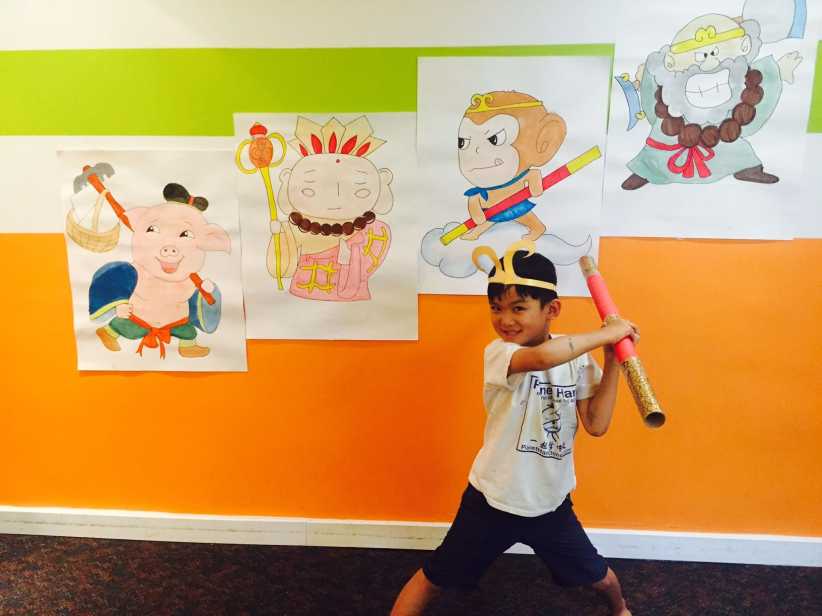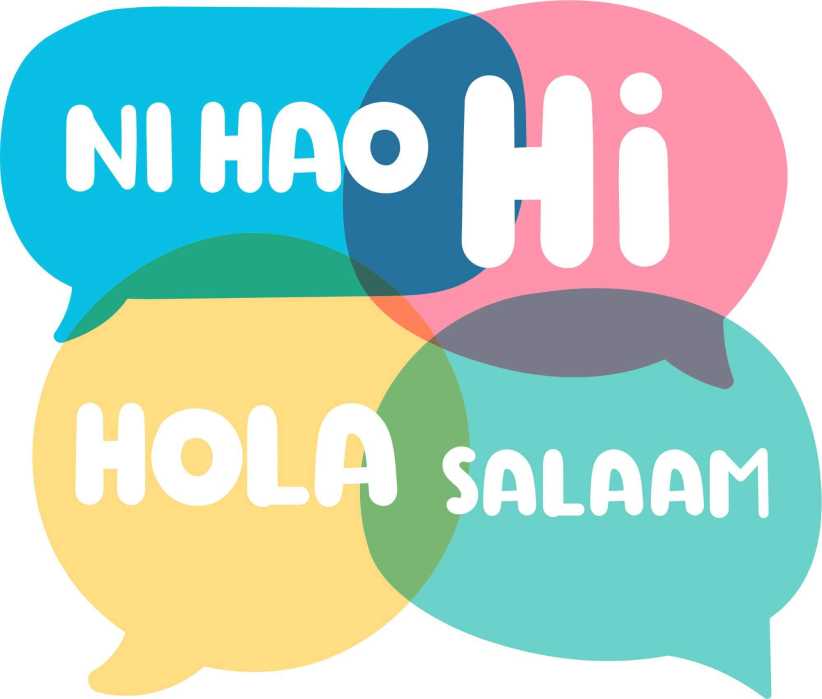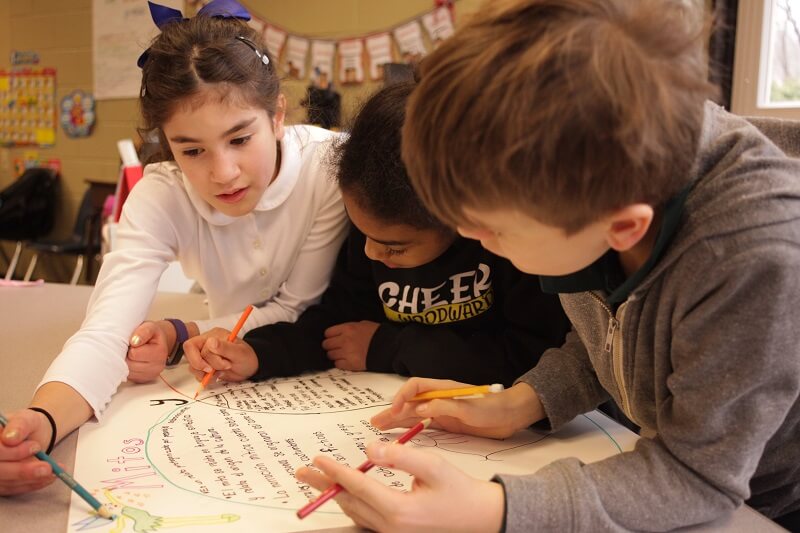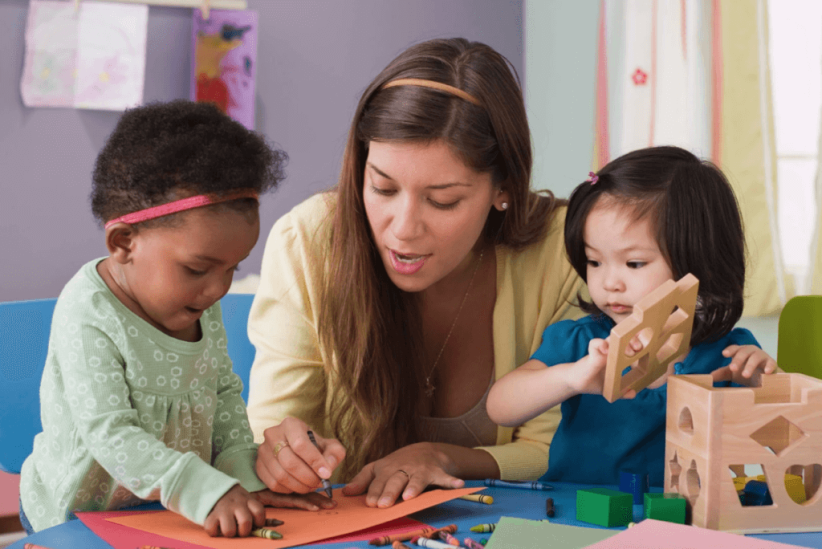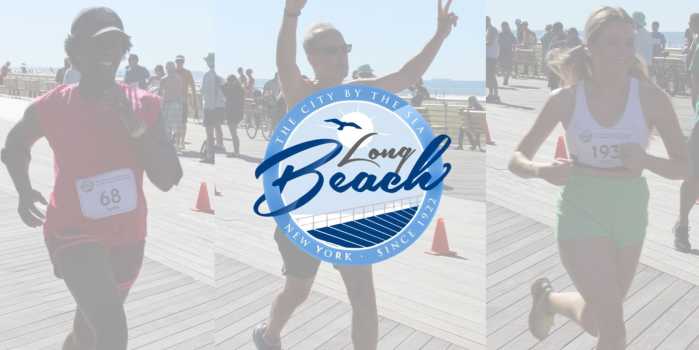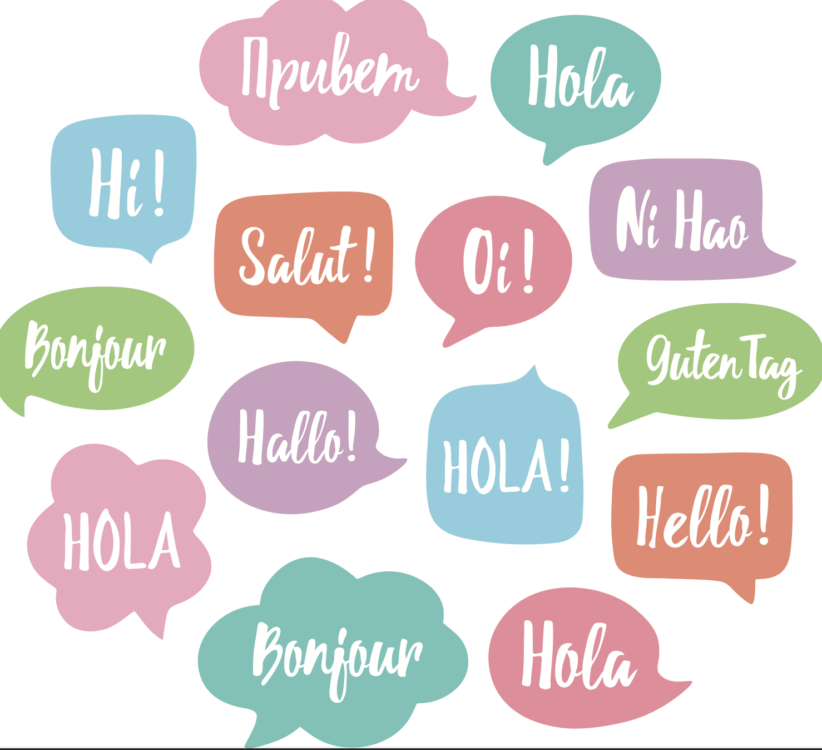
Bilingual Education for Kids
Better grades. More brain power. Academic success. These are all things parents want for their children when it comes to their education. While it can be challenging for parents to uncover the secret to success for their budding student, many childhood education and wellness experts are in agreement that one way to help a child learn, grow and thrive in school is through bilingual education.
In a city with almost 8 million people, only about 50 percent speak only English at home, according to NYC population data. Given these statistics, it’s understandable that bilingual education is becoming increasingly popular in New York City and nearby.
Bilingual education is offered at public, charter and private schools throughout the metro area. Interestingly, parents of children who speak only English at home still choose bilingual education for the child’s education based on a number of reasons such as giving their child an opportunity to explore and embrace a culture that’s different from their own. In this article, we’ll shed some light on this learning model—addressing its benefits and concerns—to help parents decide if bilingual education is the right path for their child.
What is Bilingual Education?
First, let’s define what bilingual education actually means. In a nutshell, bilingual education is when a child learns subject matter—such as math, history and science— in two different languages. In the United States, this generally includes English and a secondary language.
In other words, bilingual education means more than learning to say “hello” in a foreign language. It refers to using two languages as a means of instruction—not just teaching the secondary language as its own subject.
While there are different models of bilingual education, educators usually teach students in their native language in conjunction with a second language. How much focus is placed on one language versus the other varies depending on the requirements of the lesson plans, teaching models and school curriculum.
History of Bilingual Education in NYC
Bilingual education has been around for quite some time now. Private schools each have their own founding stories, many dating back to the early 20th century. But as for bilingual programs in New York public schools, bilingual and ESL education appeared in 1974 following a lawsuit against the NYC’s Board of Education for failing to educate Puerto Rican students with limited English skills. Since the implementation of the Aspira Consent Decree, New York ESL and bilingual programs have expanded to serve students speaking over 145 languages.
While bilingual education began primarily as a way for kids who speak their native language at home to learn English, it has since become attractable to parents of kids who already speak English natively. Why? Keep reading to find out.
Why Choose Bilingual Education?
There are many advantages to bilingual education. First there is the connection to culture. Learning another language—and learning through another language—is a great way for children to be accepting and respectful of others of all backgrounds, celebrate diversity and promote inclusion.
Deborah Gilboa, MD, (also known as Dr. G to her patients), a family physician and professor at the University of Pittsburgh’s School of Medicine, says bilingual education gives students a more global view, something many parents want their kids to have.
“When you learn a language, you don’t just learn the language. You learn some things about the culture,” Gilboa says. “It helps children see things from more than one perspective, which is really valuable in terms of building cognition and critical thinking, too.”
Bilingual education also helps children develop empathy and improve their ability to communicate with others, no matter what their native or secondary language is.
“The language itself also strengthen’s a child’s understanding of each language,” Gilboa said. “When you’re asked to think about does the adjective goes before or after the noun and why, you start to understand the parts of speech better, how things relate better and see that often something is expressed a little differently from one language to another.”
When it comes to academics, studies have shown there are many mind-sharpening benefits of bilingual education. National Library of Medicine research suggests there are cognitive advantages to learning two languages among toddlers and infants.
“Because bilingual children inherently practice switching between languages, it’s no surprise these skills extend into academics,” says Leanne Sherred, CCC-SLP and co-founder of Expressable virtual speech therapy. “Young children have increased abilities to perform executive functioning tasks like multitasking, problem solving, and time management required for academic success.”
If a child is from a bilingual or non-English speaking household, their academic needs can be better supported in the language that they are most apt to use at home or on a daily basis, Sherred adds. This holds true even as a child gains new skills and knowledge throughout their bilingual education.
Bilingual education can also lead to more professional opportunities for students once they enter adulthood.
“Knowing more than one language in our global world makes a person a more appealing employee and more concerned global citizen,” says Gilboa, who recently authored the book From Stressed to Resilient: The Guide to Handle More and Feel It Less.
When should your child start bilingual education?
Most educators and language experts agree that introducing a child to a dual-language program at the preschool or kindergarten age is ideal, but it’s never too late. In fact, introducing your child to bilingual education at an older age can give them benefits they may not have achieved as a younger student in the same program. Children in later elementary grades above can grasp certain cognitive concepts that younger kids don’t, Gilboa says.
“Older children get a higher form of academic language, meaning they grasp vocabulary,” Gilboa says. “When kids go to a language-immersion school, those benefits only persist if the child keeps having exposure to that language.”
What are some challenges of bilingual education?
Some experts say that learning two languages can cause a delay in speech development. Sherred says this is actually a misperception based in a belief that bilingual children are prone to confusion since their vocabulary development is split between two languages.
“In reality, this phenomenon is called ‘code-switching’ and even bilingual adults regularly mix words from two languages in the same sentences,” Sherred says. “This is a completely normal part of bilingual speech development, and it doesn’t cause a delay in communication abilities.”
As children get older and their vocabulary and linguistics expand, they naturally learn how to distinguish between languages during conversations, Sherred adds.
English as a Second Language vs. Dual Language
While there are several different types of bilingual education within public, charter and private schools, one notable distinction parents should consider is English as a Second Language (ESL) versus dual language program.
Does your child speak another language at home and you want them to learn English through school? If yes, then ESL is the bilingual education format that you’re looking for. If your goal is for your child to learn two languages simultaneously (half instruction in one language and half in another language), then dual language is the right fit.
More information is available online for parents interested in bilingual education for their child. The NYC Department of Education also gives an overview on its website about the types of bilingual programs available in NYC public schools.
Bilingual Education Directory
Manhattan
Collina Italiana Italian Language and Cultural Center
1556 Third Avenue @ 87th Street, Suite 602-603 New York, NY
212-427-7770
From the artwork and literature to the cuisine and culture, the Italian language connects children to a world of beauty. Collina’s immersive mini summer camp is the perfect way for a child to start their journey with the Italian language, an experience that combines fun with all things Italian.
The École
111 E. 22nd St., New York, NY
+1 646 410 2238
bonjour@theEcole.org
The École is an independent, French-American bilingual school serving an international community of Maternelle-to-Middle School students in New York City’s Flatiron District. Through their unique dual program, which incorporates both the French and American curricula, The École offers students the lifetime benefits of a bilingual education, empowering them to create and connect to a world filled with possibilities.
Hudsonway Immersion School
525 West 52nd Street, New York, NY
212-787-8088
HudsonWay immersion School develops academically strong, biliterate students starting at age 2 through Grade 8 in NYC’s only full immersion Mandarin and Spanish school. located in Midtown West, they have a 15-year track record preparing global citizens through a personalized approach, caring staff, and a diverse community. Visit their website to learn more.
LeapUp Learning
1751 2nd Avenue (91st & 92nd St.), New York, NY
646-870-0560
LeapUp learning offers a fun Mandarin immersion Summer Camp and a robust After-School program. Their camp creates an enjoyable, inspiring authentic language experience with acting, science and culinary elements. Their After-School program includes Mandarin learning plus several clubs, including the Homework Club, Current Events Club, Open Mic Club, Academics Club and Mandarin Club.
Lycée Français de New York
505 East 75th Street
212-369-1400
Lycée Francais is one of the world’s most renowned bilingual schools. in Nursery, Pre-K and Kindergarten, each class is taught by both French- and English-speaking teachers. preschoolers learn reading, math and writing; and self-expression through art, music, and movement—in French and English, with time for play. Children do not need to speak French for their Nursery-3 and pre-K programs.
Planet Han
Two locations in Manhattan: 401 West End Avenue
1556 Third Avenue New York, NY
212-724-2421
Planet Han offers a fresh approach to learning Mandarin Chinese for all children ages 1 to 16. Their proven teaching approach – Model.Action.Talk. – makes learning Mandarin fun. Their small class size, skilled teachers and at-home support materials maximize learning.
Pusteblume International Preschool
244 W 14th St., New York, NY
212-206-1137
info@pusteblumenyc.org
A licensed, non-profit, independent preschool for children ages 2 to 5 with German and Spanish language immersion. Dual language is an option as well. Our school also offers after-school and enrichment programs for all ages that are open to students from other schools.
VHG Group – Early Childhood Language Schools
vanessa@vhggroupny.com
director@vhggroupny.com
Diversity and Bilingualism are the foundations of the VHG Group’s vision for their French bilingual daycares and preschools. Their Infants, Toddlers, and Preschoolers grow and learn in a fun, caring and multicultural environment. The well-being, happiness, academic and language development of the children are at the core of their teaching model. Join them in your Manhattan or Brooklyn neighborhood.
Brooklyn
A Fantis
195 State Street, Brooklyn, NY 11201
718 624 0501
Join NYC’s first Greek Dual Language UPK4 program! Both instruction and enrollment are balanced equally in Greek and English. Fantis is a play-based learning environment with weekly specials including Art, Music, Physical Education. Our program offers five full days with an extended day option, an outdoor playground, and after-school clubs like soccer, chess, swimming and more.
Brooklyn Global Prep
423 Kent Ave., Brooklyn, NY 11249
718- 734-2771
Brooklyn Global Prep is a unique, Reggio-inspired Language Immersion Preschool located in Williamsburg, providing a variety of innovative, language immersion experiences for young learners age Infant to Kindergarten. Children spend their day immersed in rich vocabulary in Mandarin Chinese or French, while our academic curriculum is presented by loving teachers in an engaging way. Their child-centric haven utilizes language immersion, creative open spaces, nature, art and music to continue the path of happy, culturally diverse, open-minded global thinkers and forever learners.
Language & Laughter Studio
137 Nevins St.,Brooklyn, NY 11217
718- 596-2233
The Language and Laughter Studio is a French Immersion preschool in downtown Brooklyn. Their school combines the founding principles of Progressive Education with a rigorous French immersion program designed to maintain and foster uency over-the- course of the program. Children who graduate from LLS leave the program fluent in French with a real sense of ownership of the language. Many of them go on to attend public or private dual language (French-English).
Leep Dual Language Academy Charter School
5323 Fifth Avenue, 2nd Floor, Brooklyn
917-819-LEEP ext 5337
LEEP Dual Language Academy Charter School is a Spanish-language immersion elementary school in Sunset Park, Brooklyn. Enrolling at LEEP Academy will give your child the academic, cognitive, and cultural benefits of speaking a second language, along with a challenging academic experience—and no tuition bill. The school is led by a proven leadership team and experienced teachers from across Latin America and the United States, all of them fully bilingual. Now accepting applications for the 2022-23 school year for children entering K-2, regardless of language background. The school will grow to serve K-5, with a possible continuation into middle school.
VHG Group – Early Childhood Language Schools
vanessa@vhggroupny.com
director@vhggroupny.com
Diversity and Bilingualism are the foundations of the VHG Group’s vision for their French bilingual daycares and preschools. Their Infants, Toddlers, and Preschoolers grow and learn in a fun, caring and multicultural environment. The well-being, happiness, academic and language development of the children are at the core of their teaching model. Join them in your Manhattan or Brooklyn neighborhood!
Westchester
French-American School of New York
Manor Campus (Nursery-Grade 3), 111 Larchmont Avenue, Larchmont, 914-250-0469
Village Campus (Grades 4-8), 145 New Street, Mamaroneck, 914-250-0451
Harbor Campus (Grades 9-12), 320 East Boston Post Road, Mamaroneck, 914-250-0477
FASNY is an international and bilingual N-12 day school on three campuses in Westchester, New York. Students are offered the opportunity to participate in either the French-American Program or the International Program, beginning in grade 1 (no French required). FASNY is the only school in the NY metropolitan area accredited to offer the International Baccalaureate (IB) diploma and the French baccalaureate.
German International School New York (GISNY)
50 Partridge Road, White plains, NY 10605
admissions@gisny.org
914- 948-6513
For over 40 years, GiSNY, an independent pre-K through Grade 12 college preparatory program, has cultivated students to develop into curious, analytical, and conscientious global citizens. No German is required for pre-K and Kindergarten children who are welcomed into a bright, spacious, and nurturing environment, and with GiSNY’s Nature-Based Early Childhood Education program the students enjoy most of their school day outdoors exploring, learning, and playing on the beautiful 20-acre campus.
Psst… Check out Special Needs Glossary (and bonus special needs listings): Definitions That Every Family Should Know












